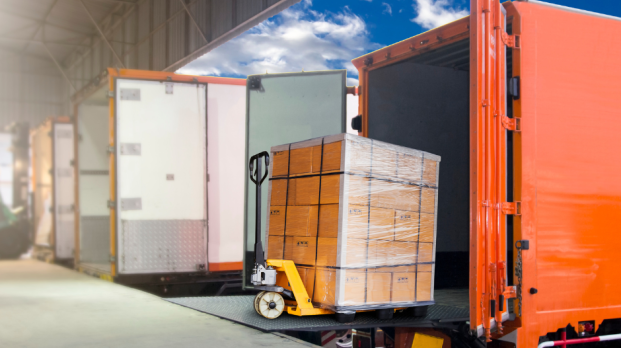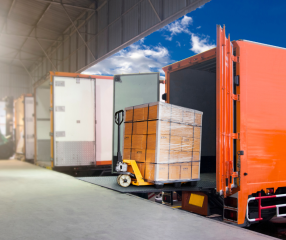
By Senthilnathan Shanmugam, Group CEO, EFL Global
Policy shifts, geopolitical tensions, and evolving trade relationships are reshaping international commerce at a pace we've rarely seen before. But this period of disruption is not permanent: uncertainty will eventually give way to renewed momentum. When it does, we can expect a sharp surge in demand as companies race to rebuild inventories, restore reliability, and capture growth opportunities. As industry leaders, we must not only respond to these changes but anticipate them, positioning ourselves to provide solutions that keep global trade flowing efficiently despite disruption.
This new era requires a mindset that embraces agility, long-term investment in diversified infrastructure, and an unrelenting focus on customer-centric innovation. The organizations that succeed will be those that lead with strategic foresight and operational flexibility.
Geographic Diversity: The Ultimate Strategic Advantage
The current environment of trade uncertainty has revealed the critical importance of geographic diversity as a strategic asset. When policy changes trigger sourcing shifts and companies face potential tariffs or restrictions, the fundamental question becomes: "If I can't continue sourcing from this region, where should I go instead?"
Organizations with established presence across multiple countries and regions can pivot quickly when trade flows shift, offering immediate alternatives to disrupted supply chains. The capability to pivot quickly and have previously established infrastructure and expertise in a variety of markets has become invaluable to clients navigating uncertainty. Companies that have invested in building presence across key sourcing geographies over decades now find themselves uniquely positioned to help customers adapt to changing conditions.
Geographic diversity is about more than locations on a map, it’s about having boots on the ground, relationships with local partners, and institutional knowledge of regulatory, cultural, and logistical nuances.
India's emergence as a manufacturing and logistics powerhouse exemplifies this opportunity. Once viewed as lagging behind China, India has transformed through massive infrastructure investments and leveraging its large, young population and significant talent pool. With GDP growth averaging over 7% – remarkably high compared to many other economies and relatively political neutrality in an increasingly polarized world, India has positioned itself advantageously in the global trade equation.
India's economic trajectory resembles a journey that has progressed from an alley to a byway, from a byway to a main road, from a main road to a highway, and now entering the superhighway. This new foundation represents remarkable progress, and opens the door for the broader Indian subcontinent to gain significantly from these global trade shifts, creating new opportunities for organizations with established regional presence.
Resilient Partnerships That Adapt and Deliver
The defining characteristic of successful supply chain organizations in this complex environment is resilience, or the ability to adapt to changing conditions while maintaining service excellence. This resilience often emerges from integration across critical service areas and specialization in handling diverse product requirements.
Looking forward, the most effective supply chain organizations will connect three critical capabilities: freight forwarding (cross-border movement), B2B delivery networks, and comprehensive logistics solutions including 3PL and 4PL services. Clients are increasingly demanding end-to-end visibility and optimization that this integration provides.
Integrated solutions enable real-time data sharing, predictive analytics, and proactive decision-making, capabilities that are critical in volatile or high-risk environments. This isn't theoretical; it's delivering tangible operational value today.
Simultaneously, successful organizations recognize that each product category demands specialized handling. Electronics, apparel, pharmaceuticals, and perishables each have unique requirements based on value, packaging needs, size, and sensitivity. The ability to customize solutions while maintaining systemic efficiency distinguishes logistics partners that are truly an extension of the customers' businesses, understanding and anticipating their needs.
Sustainability is another area where this deep alignment is essential. For many companies, environmental goals are core to their brand identity and reflect the values of their end-users. Customer-centric logistics providers should be embedded in those goals, engaging in those problems and solutions, working collaboratively to navigate trade-offs, track emissions and deliver on climate commitments in ways that are credible, measurable and transparent.
Customers now expect vertical expertise like cold chain solutions for pharmaceuticals or secure transit for high-value electronics, not just as a bonus, but as a baseline requirement. To meet this demand, forward-looking logistics providers are developing modular service models that blend deep specialization with scalable systems, allowing them to serve diverse industries while maintaining both agility and cost-efficiency.
Opportunity Amid Uncertainty
As we navigate a global supply chain where change and volatility are inexorable, one certainty remains: adaptable, resilient organizations that stay close to customer needs are finding pathways to success. We’re witnessing this directly across our industry networks. Companies embracing geographic diversity, integrated capabilities, and meeting customer needs are outperforming their more rigid competitors – eliminating hours of manual tasks, dramatically improving their data accuracy, and driving business growth through both operational savings and increased customer relationships.
Ultimately, disruption isn’t a detour, it’s a proving ground of global commerce. For companies willing to reimagine supply chain strategy as more than a cost center but as a competitive differentiator, the road ahead holds immense potential. Success doesn’t depend on predictions about when stability might return, but on the capacity to deliver exceptional value regardless of what global politics brings. And when the current wave of uncertainty begins to settle, as it inevitably will, the organizations that prepared during the slowdown will be the ones best positioned to capture the rebound in demand.





